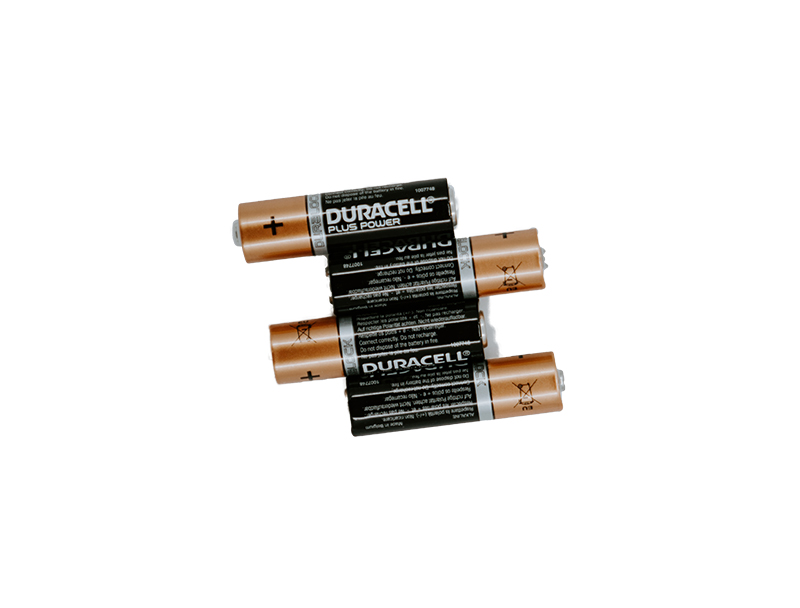What to do with alkaline batteries

Single-use batteries are used in items such as TV remotes, flashlights, toys, watches, and smoke detectors. The most common types are D, C, AA, AAA, 9-volt and button batteries
Avoid the spark
Before recycling non-working batteries, be sure to prepare them properly to avoid fire and injury. It’s best to recycle non-working batteries within 6 months of removal.
Tape the exposed terminals with duct, electrical or clear packing tape (do not use masking, painting, or gift-wrapping tape). If you use opaque tape, be sure to not cover up information on the battery chemistry. If you choose to use a bag, ensure the entire battery is enclosed using clear, plastic, zip-top bags.
DDR batteries have visible damage such as bulging, swelling, leaking or have been recalled by the manufacturer. They should never be collected or stored in containers with non-DDR batteries. Store them separately, fully surrounded by sand or kitty litter, and take them to your local household hazardous waste facility.
Store non-working batteries in a cool, dry place. Incidents can occur when batteries are exposed to inclement or excessively hot weather. Always store batteries in a plastic container; avoid metal.
Where can it go?
Find a RecycleSpot
Where can you recycle or safely dispose of single-use batteries in the Kansas City area? Search our database.